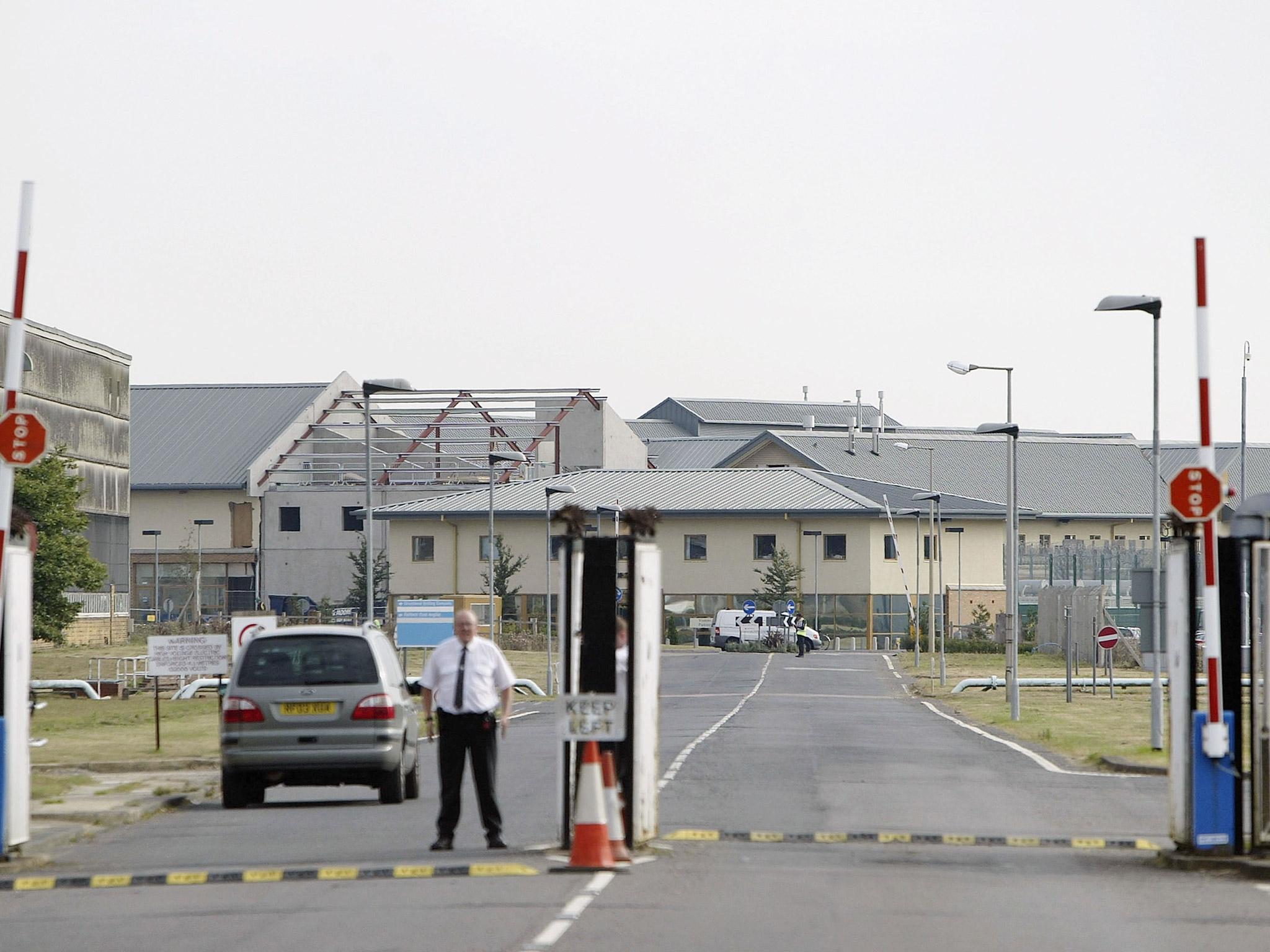With a year to go until Brexit day, the left needs to promote a progressive migration strategy
As well as debunking core myths around migration, work and detention, we need to commit ourselves to offering concrete alternatives unless we want to cede that ground to either the hard right or the xenophobic ‘socialism in one country’ left


Your support helps us to tell the story
From reproductive rights to climate change to Big Tech, The Independent is on the ground when the story is developing. Whether it's investigating the financials of Elon Musk's pro-Trump PAC or producing our latest documentary, 'The A Word', which shines a light on the American women fighting for reproductive rights, we know how important it is to parse out the facts from the messaging.
At such a critical moment in US history, we need reporters on the ground. Your donation allows us to keep sending journalists to speak to both sides of the story.
The Independent is trusted by Americans across the entire political spectrum. And unlike many other quality news outlets, we choose not to lock Americans out of our reporting and analysis with paywalls. We believe quality journalism should be available to everyone, paid for by those who can afford it.
Your support makes all the difference.Wiley once said that all clashes are based on lies, truth and rumour. And as in grime, so in politics: since Jeremy Corbyn became leader of Her Majesty’s Official Opposition, the hard right has ceaselessly promoted the lie that a Labour government would mean an “open door” immigration policy; meanwhile rumours of a lurch towards left economic nationalism have abounded as the 2017 manifesto stated unequivocally that under a Labour government, freedom of movement would end when we leave the European Union. The truth is that while Jeremy Corbyn might not be carving slogans into stone, the Labour Party’s line on immigration hasn’t changed a great deal since Ed Miliband’s tenure as leader. The promise of a “fair and managed” migration system has so far been a placeholder for concrete political content – and that’s an opportunity for the anti-racist left to map out a progressive immigration policy.
Electoral politics require a degree of disingenuousness (I refuse to believe that Laura Pidcock actually wants to call any Tory a “right honourable” anything). With that in mind, it’s strategically necessary for leftists (regardless of how they voted in the EU referendum) to frame policy proposals as though Lexit is the only viable game in town. It is technically true that leaving the EU means an end to the freedom of movement; it is not, however, inevitable that what follows must inevitably be a more restrictive immigration system in which the status of EU nationals is made more precarious.
As with Corbyn’s commitments to protect and extend the worker’s rights enshrined in law after Brexit, the EU’s migration policy must be the floor – and not the ceiling – of what we imagine a progressive migration policy to look like. Diane Abbott has already committed to guaranteeing the same rights to EU citizens who arrived in the UK during the transition period as those who were in the UK before March 2019. In addition to this, Labour must commit to outlining a streamlined and straightforward process for both EU and non-EU visa applications for when the transition period comes to an end, with the policy being shaped in consultation with migrant rights organisations. Financial support for visa applications should be made available to those who have already been working and paying tax in the UK, and charges for appeals against rejected applications should be scrapped altogether.
Despite popular myths to the contrary, EU migration has little to no negative impact on the wages of less skilled UK-born workers. Jeremy Corbyn’s recent comments on the Posted Workers Directive, when read in isolation, are a little misleading; most posted workers in the UK are from high-wage countries and so the effects of undercutting British wage standards are highly limited. Corbyn’s emphasis on closing the loopholes through which bosses exploit migrant workers is a more productive approach, and should be coupled with commitments to strengthening the capacity for both UK- and non-UK-born workers to collectively agitate for better pay and conditions. As it stands, workers on sponsored visas are automatically reported to the Home Office if they miss 10 or more consecutive days through strike action; this punitive use of immigration status to restrict workplace organising must be brought to an end by a Labour government.
The European Union is not, and never has been, an anti-racist institution. Freedom of movement within the 28 member states has relied on the brutal enforcement of the borders of Fortress Europe: more than 33,000 people have died since 2000 trying to cross the Mediterranean Sea to Europe, making this by far the world’s deadliest border. As well as having the lowest rate of asylum approvals among comparative Western European countries, the UK currently has one of the largest immigration detention networks in the European Union, detaining nearly 30,000 people in 2016. For comparison, Germany detained fewer than 2000 people in 2014.
Currently asylum seekers in temporary accommodation receive a meagre £36.95 a week to cover food, clothing, toiletries, transport and all other costs; leftists must agitate for this sum to increase to £211.25, which reflects the national minimum wage with the cost of housing paid for by the state deducted from it. Furthermore, after Brexit, Labour should commit to at least double Britain’s refugee intake to match that of Germany’s resettlement rate, or better yet exceed it, in order to fulfil our obligations under international law to care for the most vulnerable of the world’s population.
A Labour government must commit to dismantling the UK’s network of immigration detention centres entirely. In addition to being inhumane, the system of immigration detention is incredibly expensive: it costs £34,000 to detain someone for a year, over £10,000 more than if that same migrant were claiming every single benefit that’s available to a UK citizen. Processing right to remain claims in the community, for both asylum and so-called “economic” migrants, is significantly cheaper than detention – these savings should be directed to helping migrants with access to housing, education and advisory services, this transforming the Home Office’s “monitoring” obligations from a standpoint of suspicion to one of support.
With a year to go until “Brexit Day”, it’s more pressing than ever that anti-racists engage substantively with the minutiae of immigration policy. As well as debunking core myths around migration, work and detention, we need to commit ourselves to offering concrete alternatives unless we want to cede that ground to either the hard right or the xenophobic “socialism in one country” left. If we want to embed – and indeed, normalise – progressive migration strategies in our political culture, it’s vital that we lean in to the legislative opportunities afforded by the coming years. Remain vs Leave is no longer a useful political antagonism; it’s the diverse, plural and international “us” vs the elites.
Join our commenting forum
Join thought-provoking conversations, follow other Independent readers and see their replies
Comments